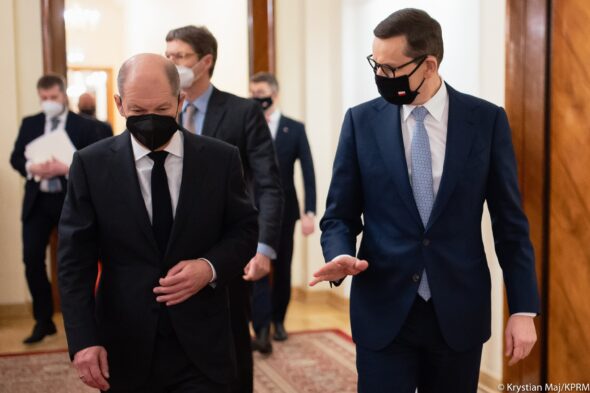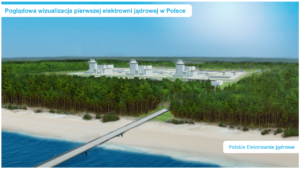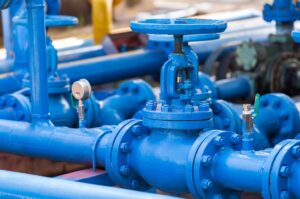Does the US-Germany agreement on Nord Stream 2 contain a secret protocol? Is Poland concerned mainly about Ukraine, because it is calm about the Baltic Pipe, which in the best case scenario will move faster than the pipe from Russia? – asks Wojciech Jakóbik, editor-in-chief at BiznesAlert.pl.
A classified protocol and new red lines
According Bloomberg’s unofficial scoop, the agreement between Germany and the United States includes a mechanism for stopping gas supplies through Nord Stream 2 if a red line, i.e. another Russian aggression against Ukraine, is crossed. When Chancellor Angela Merkel and President Joe Biden made this deal in July 2021, that line was defined as political blackmail with the use of gas. However, it might have been already crossed when Gazprom deliberately lowered the supply of this fuel to Europe by limiting the amount of gas in storage and of gas sold to the European market in the fall of 2021. It is not known what this mechanism would entail, or whether it would actually be implemented if the Russians crossed another red line.
Assuming that Russians want to force concessions from the West, the use of the bogeyman in the form of the buildup of armed forces on the border with Ukraine to block the sanctions against Nord Stream 2 can be considered a success. From the Kremlin’s point of view, the bogeyman worked, because it prompted the Democrats to withdraw the provisions on new sanctions against Nord Stream 2. However, these were withdrawn as a result of German intervention, as they would have affected the operator Nord Stream 2 AG, as well as the companies involved in the preparation of the pipeline for operation, which are German. Either way, the sanctions were not extended despite the use of gas as a weapon, and the risk that Nord Stream 2 would be used in this way.
This risk was mentioned by Polish Prime Minister Mateusz Morawiecki during a meeting with German Chancellor Olaf Scholz in Warsaw. „We are trying to work out solutions with our German partners. The best solution would be to prevent Nord Stream 2 from opening. These risks have not been fully identified yet, and some may be exploited once the pipeline is finally opened,” warned the Prime Minister. It is true that it is not yet clear how Nord Stream 2 could be used in the context of the energy crisis and gas shortages. Russia has already used its power as a gas supplier for political purposes, as evidenced by the anomalies in the Gazprom-controlled storage units, and the fact that it limited gas sales despite record prices, which goes against the logic of the market. „Our neighbor, Ukraine, as a result of the opening of the new gas connection Nord Stream 2, is in a worse situation. We, Slovakia and the Eastern countries of the European Union are in a more difficult situation as well. These countries may be subject to blackmail by Russia. That is why we are building the Baltic pipeline (the Baltic Pipe – ed.), and we are increasing our independence of Russia, but Ukraine is completely dependent on gas. We would very much not want it to succumb to blackmail from Russia, because it will mean destabilization on the eastern flank of NATO and the European Union, ” Morawiecki warned.
The Nord Stream 2 deal remains on the horizon
Chancellor Scholz assured that the basis of the talks between the US and Germany is an interim agreement on gas transfers via Ukraine until 2024, which would be extended by up to 10 years. „We will consult with the US government and we will have to help Ukraine become a source of green energy. We are watching the movements of troops on the Ukrainian border and we are very concerned. Territorial integrity is essential, ” he said, without referring directly to the Nord Stream 2 project. Scholz also explained that since Germany wants to be climate neutral in 2050, its dependence on gas will decrease soon. However, the German business association BDI estimates additional gas demand in Germany at 41 GW, which is about 50 billion cubic meters a year. Nord Stream 2 has a capacity of 55 billion cubic meters a year. However, Germany wants to have the last laugh and become independent of gas supply through an energy transformation based on renewable energy sources and energy storage. Hydrogen could be used as the energy carrier, but according to the coalition agreement recently signed in Germany, the gas could also partly come from Russia, possibly via Nord Stream 2.
Baltic Pipe before Nord Stream 2?
The Nord Stream 2 deal forged by the US and Germany in July 2021 is still on the horizon. The change in Polish rhetoric is noteworthy, as Warsaw has started to deem the threat of Nord Stream 2 as an existential problem for Ukraine, as evidenced by the words of the Polish Prime Minister, who said that Poland will negotiate in order to avoid gas blackmail against Ukrainians, to which the Poles will be less sensitive thanks to the Baltic Pipe, complementing the system of diversification of gas supply sources in the form of an LNG terminal and connections with neighbors.
There is a chance that the pipeline from Norway scheduled for October 2022 will move faster than Nord Stream 2, which I wrote about in the past. The need for the Russian pipeline to be certified by the German regulator, the Bundesnetzagentur, means that a German company must be set up to manage the pipeline under the jurisdiction of German and EU law. This was confirmed by the Minister of Foreign Affairs, Annalena Baerbock, known for her intransigent attitude towards this investment. Various estimates indicate that certification may end in the spring or summer of 2022. This process will still be evaluated by the European Commission, as well as the Polish PGNiG and Ukraine’s Naftogaz and OGTSUA. They may challenge the decision before the Court of Justice of the European Union.
Germany will create a special company or transfer the role of the operator of Nord Stream 2 to a „climate” foundation called Stiftung Klimaschutz, created by Mecklenburg-Vorpommern’s Prime Minister Manuela Schwesig, who has been dubbed „Gerhard Schroeder in a skirt”, because of her pro-Russian attitudes. Then it will be impossible for the US to impose sanctions on the operator, because under US law they cannot hit entities under the control of governments and institutions of US allies. However, the Bundesnetzagentur will be able to certify the pipe. Still, this does not mean that deliveries will start immediately after the certification, due to possible problems in the European Commission or companies from Poland and Ukraine taking the issue to court. If Nord Stream 2 is launched after the Baltic pipeline, its impact on the gas market in Poland will be limited. However, the pipe from Russia will still be an existential threat to Ukraine, so „the best solution would be to prevent the opening of Nord Stream 2”. However, there is no such will in the US or Germany. By launching an attack on Ukraine, President Vladimir Putin could provide arguments for killing the project, but why would he do that if the bogeyman itself is enough to force the West to sit at the negotiation table?









